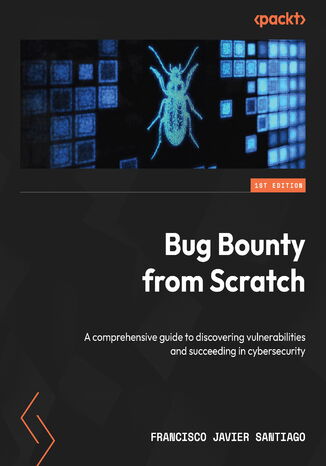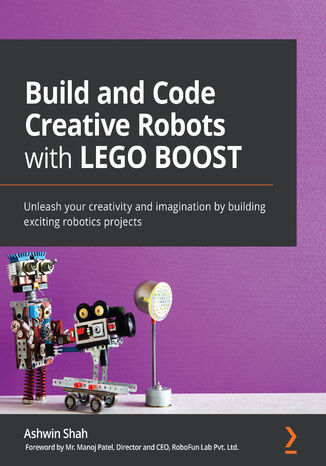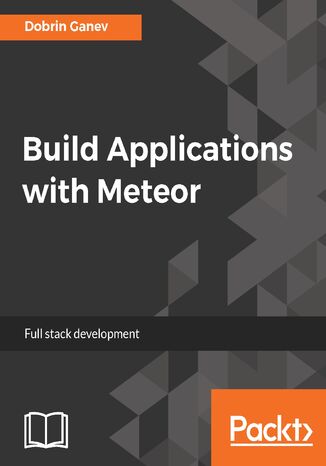Категорії
Електронні книги
-
Бізнес та економіка
- Біткойн
- Ділова жінка
- Коучинг
- Контроль
- Електронний бізнес
- Економіка
- Фінанси
- Фондова біржа та інвестиції
- Особисті компетенції
- Комп'ютер в офісі
- Комунікація та переговори
- Малий бізнес
- Маркетинг
- Мотивація
- Мультимедійне навчання
- Нерухомість
- Переконання та НЛП
- Податки
- Соціальна політика
- Порадники
- Презентації
- Лідерство
- Зв'язки з громадськістю
- Звіти, аналізи
- Секрет
- Соціальні засоби комунікації
- Продаж
- Стартап
- Ваша кар'єра
- Управління
- Управління проектами
- Людські ресурси (HR)
-
Для дітей
-
Для молоді
-
Освіта
-
Енциклопедії, словники
-
Електронна преса
- Architektura i wnętrza
- Безпека життєдіяльності
- Biznes i Ekonomia
- Будинок та сад
- Електронний бізнес
- Ekonomia i finanse
- Езотерика
- Фінанси
- Особисті фінанси
- Бізнес
- Фотографія
- Інформатика
- Відділ кадрів та оплата праці
- Для жінок
- Комп'ютери, Excel
- Бухгалтерія
- Культура та література
- Наукові та академічні
- Охорона навколишнього середовища
- Впливові
- Освіта
- Податки
- Подорожі
- Психологія
- Релігія
- Сільське господарство
- Ринок книг і преси
- Транспорт та спедиція
- Здоров'я та краса
-
Історія
-
Інформатика
- Офісні застосунки
- Бази даних
- Біоінформатика
- Бізнес ІТ
- CAD/CAM
- Digital Lifestyle
- DTP
- Електроніка
- Цифрова фотографія
- Комп'ютерна графіка
- Ігри
- Хакування
- Hardware
- IT w ekonomii
- Наукові пакети
- Шкільні підручники
- Основи комп'ютера
- Програмування
- Мобільне програмування
- Інтернет-сервери
- Комп'ютерні мережі
- Стартап
- Операційні системи
- Штучний інтелект
- Технологія для дітей
- Вебмайстерність
-
Інше
-
Іноземні мови
-
Культура та мистецтво
-
Шкільні читанки
-
Література
- Антології
- Балада
- Біографії та автобіографії
- Для дорослих
- Драми
- Журнали, щоденники, листи
- Епос, епопея
- Нарис
- Наукова фантастика та фантастика
- Фельєтони
- Художня література
- Гумор, сатира
- Інше
- Класичний
- Кримінальний роман
- Нехудожня література
- Художня література
- Mity i legendy
- Лауреати Нобелівської премії
- Новели
- Побутовий роман
- Okultyzm i magia
- Оповідання
- Спогади
- Подорожі
- Оповідна поезія
- Поезія
- Політика
- Науково-популярна
- Роман
- Історичний роман
- Проза
- Пригодницька
- Журналістика
- Роман-репортаж
- Romans i literatura obyczajowa
- Сенсація
- Трилер, жах
- Інтерв'ю та спогади
-
Природничі науки
-
Соціальні науки
-
Шкільні підручники
-
Науково-популярна та академічна
- Археологія
- Bibliotekoznawstwo
- Кінознавство / Теорія кіно
- Філологія
- Польська філологія
- Філософія
- Finanse i bankowość
- Географія
- Економіка
- Торгівля. Світова економіка
- Історія та археологія
- Історія мистецтва і архітектури
- Культурологія
- Мовознавство
- літературні студії
- Логістика
- Математика
- Ліки
- Гуманітарні науки
- Педагогіка
- Навчальні засоби
- Науково-популярна
- Інше
- Психологія
- Соціологія
- Театральні студії
- Богослов’я
- Економічні теорії та науки
- Transport i spedycja
- Фізичне виховання
- Zarządzanie i marketing
-
Порадники
-
Ігрові посібники
-
Професійні та спеціальні порадники
-
Юридична
- Безпека життєдіяльності
- Історія
- Дорожній кодекс. Водійські права
- Юридичні науки
- Охорона здоров'я
- Загальне, компендіум
- Академічні підручники
- Інше
- Закон про будівництво і житло
- Цивільне право
- Фінансове право
- Господарське право
- Господарське та комерційне право
- Кримінальний закон
- Кримінальне право. Кримінальні злочини. Кримінологія
- Міжнародне право
- Міжнародне та іноземне право
- Закон про охорону здоров'я
- Закон про освіту
- Податкове право
- Трудове право та законодавство про соціальне забезпечення
- Громадське, конституційне та адміністративне право
- Кодекс про шлюб і сім'ю
- Аграрне право
- Соціальне право, трудове право
- Законодавство Євросоюзу
- Промисловість
- Сільське господарство та захист навколишнього середовища
- Словники та енциклопедії
- Державні закупівлі
- Управління
-
Путівники та подорожі
- Африка
- Альбоми
- Південна Америка
- Центральна та Північна Америка
- Австралія, Нова Зеландія, Океанія
- Австрія
- Азії
- Балкани
- Близький Схід
- Болгарія
- Китай
- Хорватія
- Чеська Республіка
- Данія
- Єгипет
- Естонія
- Європа
- Франція
- Гори
- Греція
- Іспанія
- Нідерланди
- Ісландія
- Литва
- Латвія
- Mapy, Plany miast, Atlasy
- Мініпутівники
- Німеччина
- Норвегія
- Активні подорожі
- Польща
- Португалія
- Інше
- Przewodniki po hotelach i restauracjach
- Росія
- Румунія
- Словаччина
- Словенія
- Швейцарія
- Швеція
- Світ
- Туреччина
- Україна
- Угорщина
- Велика Британія
- Італія
-
Психологія
- Філософія життя
- Kompetencje psychospołeczne
- Міжособистісне спілкування
- Mindfulness
- Загальне
- Переконання та НЛП
- Академічна психологія
- Психологія душі та розуму
- Психологія праці
- Relacje i związki
- Батьківство та дитяча психологія
- Вирішення проблем
- Інтелектуальний розвиток
- Секрет
- Сексуальність
- Спокушання
- Зовнішній вигляд та імідж
- Філософія життя
-
Релігія
-
Спорт, фітнес, дієти
-
Техніка і механіка
Аудіокниги
-
Бізнес та економіка
- Біткойн
- Ділова жінка
- Коучинг
- Контроль
- Електронний бізнес
- Економіка
- Фінанси
- Фондова біржа та інвестиції
- Особисті компетенції
- Комунікація та переговори
- Малий бізнес
- Маркетинг
- Мотивація
- Нерухомість
- Переконання та НЛП
- Податки
- Соціальна політика
- Порадники
- Презентації
- Лідерство
- Зв'язки з громадськістю
- Секрет
- Соціальні засоби комунікації
- Продаж
- Стартап
- Ваша кар'єра
- Управління
- Управління проектами
- Людські ресурси (HR)
-
Для дітей
-
Для молоді
-
Освіта
-
Енциклопедії, словники
-
Електронна преса
-
Історія
-
Інформатика
-
Інше
-
Іноземні мови
-
Культура та мистецтво
-
Шкільні читанки
-
Література
- Антології
- Балада
- Біографії та автобіографії
- Для дорослих
- Драми
- Журнали, щоденники, листи
- Епос, епопея
- Нарис
- Наукова фантастика та фантастика
- Фельєтони
- Художня література
- Гумор, сатира
- Інше
- Класичний
- Кримінальний роман
- Нехудожня література
- Художня література
- Mity i legendy
- Лауреати Нобелівської премії
- Новели
- Побутовий роман
- Okultyzm i magia
- Оповідання
- Спогади
- Подорожі
- Поезія
- Політика
- Науково-популярна
- Роман
- Історичний роман
- Проза
- Пригодницька
- Журналістика
- Роман-репортаж
- Romans i literatura obyczajowa
- Сенсація
- Трилер, жах
- Інтерв'ю та спогади
-
Природничі науки
-
Соціальні науки
-
Науково-популярна та академічна
-
Порадники
-
Професійні та спеціальні порадники
-
Юридична
-
Путівники та подорожі
-
Психологія
- Філософія життя
- Міжособистісне спілкування
- Mindfulness
- Загальне
- Переконання та НЛП
- Академічна психологія
- Психологія душі та розуму
- Психологія праці
- Relacje i związki
- Батьківство та дитяча психологія
- Вирішення проблем
- Інтелектуальний розвиток
- Секрет
- Сексуальність
- Спокушання
- Зовнішній вигляд та імідж
- Філософія життя
-
Релігія
-
Спорт, фітнес, дієти
-
Техніка і механіка
Відеокурси
-
Бази даних
-
Big Data
-
Biznes, ekonomia i marketing
-
Кібербезпека
-
Data Science
-
DevOps
-
Для дітей
-
Електроніка
-
Графіка / Відео / CAX
-
Ігри
-
Microsoft Office
-
Інструменти розробки
-
Програмування
-
Особистісний розвиток
-
Комп'ютерні мережі
-
Операційні системи
-
Тестування програмного забезпечення
-
Мобільні пристрої
-
UX/UI
-
Веброзробка, Web development
-
Управління
Подкасти
Buffalo Bills Spy Trailer. Or The Stranger in Camp
By the author of the celebrated Buffalo Bill stories. Colonel Prentiss Ingraham was a Colonel in the Confederate Army, a professional military officer throughout the 1860s and a fiction writer. As well as writing under his own name, he published under pseudonyms including Dr. Noel Dunbar, Dangerfield Burr, Major Henry B. Stoddard, Colonel Leon Lafitte, Frank Powell, Harry Dennies Perry, Midshipman Tom W. Hall, and Lieut. Preston Graham. Buffalo Bills Spy Trailer: The Stranger in Camp was first published in 1908. In it, a legendary figure of the Wild West who was canny enough to capitalize off of his own notoriety, William Cody was a renowned soldier and hunter. This action-packed tale parlays some of the historical facts surrounding Buffalo Bills life into a larger-than-life, thrill-a-minute Western.
Francisco Javier Santiago Vázquez
Bug bounty programs help to enhance cybersecurity by incentivizing ethical hackers to discover vulnerabilities. This book is a comprehensive guide, equipping you with practical skills to excel in bug bounty programs and contribute to a safer digital ecosystem.You’ll start with an introduction to the bug bounty world, followed by preparation techniques for participation, including vulnerability discovery methods, tools, and resources. Specific sections will provide you with tips and best practices to help you optimize rewards. The book also aims to cover fundamental aspects, such as program structure, key tools, methodologies, and common vulnerabilities, drawing insights from community hackers’ public reports. As you progress, you’ll discover that ethical hacking can be legally learned through bug bounty programs, gaining practical knowledge of offensive security and bug bounty platform operations.By the end of this bug bounty book, you’ll have the confidence you need to navigate bug bounty programs, find security vulnerabilities, craft reports, and reap rewards.
Carlos A. Lozano, Shahmeer Amir
Bug bounty programs are the deals offered by prominent companies where-in any white-hat hacker can find bugs in the applications and they will have a recognition for the same. The number of prominent organizations having this program has increased gradually leading to a lot of opportunity for Ethical Hackers.This book will initially start with introducing you to the concept of Bug Bounty hunting. Then we will dig deeper into concepts of vulnerabilities and analysis such as HTML injection, CRLF injection and so on. Towards the end of the book, we will get hands-on experience working with different tools used for bug hunting and various blogs and communities to be followed.This book will get you started with bug bounty hunting and its fundamentals.
Stanisław Jachowicz Bajki i powiastki Bug i strumyk Uskarżał się Bug na to, iż gdy w Narew wpadał, Imię, podobne Stwórcy nazwisku, postradał. Na to mu rzecze strumyk, który płynął blisko: Nie nazwisko nas zdobi, ale my nazwisko. ----- Ta lektura, podobnie jak tysiące innych, dostępna jest na... Stanisław Jachowicz Ur. 17 kwietnia 1796 w Dzikowie (dziś dzielnica Tarnobrzega) Zm. 24 grudnia 1857 w Warszawie Najważniejsze dzieła: Rozmowy mamy z Józią służące za wstęp do wszelkich nauk, a mianowicie do gramatyki, ułożone dla pożytku młodzieży, Pisma różne wierszem Stanisława Jachowicza, Śpiewy dla dzieci, Rady wuja dla siostrzenic: (upominek dla młodych panien), Pomysły do poznania zasad języka polskiego, Ćwiczenia pobożne dla dzieci, rozwijające myśl, Podarek dziatkom polskim: z pozostałych pism ś. p. Stanisława Jachowicza, Upominek z prac Stanisława Jachowicza: bajki, nauczki, opisy, powiastki i różne wierszyki Poeta, bajkopisarz, pedagog, działacz charytatywny. Ukończył szkołę pijarów w Rzeszowie oraz gimnazjum w Stanisławowie. Studiował na wydziale filozoficznym na Uniwersytecie we Lwowie. Na studiach był współzałożycielem i wpływowym członkiem tajnego Towarzystwa Ćwiczącej się Młodzieży w Literaturze Ojczystej, a także inspiratorem i prezesem Towarzystwa Studenckiego Koła Literacko-Naukowego. Po studiach zamieszkał w Warszawie, gdzie objął posadę kancelisty w Prokuratorii Generalnej Królestwa Polskiego. Przystąpił do Związku Wolnych Polaków, po wykryciu którego otrzymał zakaz zajmowania posad rządowych. Wobec tego jego głównym zajęciem była praca pedagogiczna jako nauczyciela języka polskiego w domach i na prywatnych stancjach dla dziewcząt. Debiut literacki Jachowicza miał miejsce w 1818 r. w Pamiętniku lwowskim, gdzie opublikował bajki. Pierwszą książkę wydał w 1824 r. - zbiór bajek i powiastek pt. Bajki i powieści. Przez cztery kolejne lata ukazywały się rozszerzone wydania tego zbioru pod tym samym tytułem; w 1829 r. zbiór zawierał już 113 utworów. Jest autorem kilkuset wierszyków i powiastek dydaktyczno-moralizatorskich. Publikował również w periodykach pod własnym nazwiskiem lub pod pseudonimem Stanisław z Dzikowa. W 1829 r. redagował przez rok Tygodnik dla Dzieci. W W 1830 r. przy współudziale Ignacego Chrzanowskiego zaczął wydawać pierwsze w Europie codzienne pismo dla dzieci - Dziennik dla Dzieci. Publikowane przez niego gazety i książki miały wychowywać, ale też uczyć czytania, liczenia i historii. Zajmował się również opieką społeczną nad dziećmi. Kupując książkę wspierasz fundację Nowoczesna Polska, która propaguje ideę wolnej kultury. Wolne Lektury to biblioteka internetowa, rozwijana pod patronatem Ministerstwa Edukacji Narodowej. W jej zbiorach znajduje się kilka tysięcy utworów, w tym wiele lektur szkolnych zalecanych do użytku przez MEN, które trafiły już do domeny publicznej. Wszystkie dzieła są odpowiednio opracowane - opatrzone przypisami oraz motywami.
Bug kojarzył mi się głównie ze wspomnieniami starszych członków rodziny. Ten rzeczywisty płynął gdzieś daleko i widywałem go jedynie okazyjnie, najczęściej z mostu. Dopiero zainteresowania przyrodnicze sprawiły, że zacząłem regularnie pojawiać się w dolinie. Z lornetką, aparatem, autem, pieszo bądź kajakiem... Co jest w tej rzece szczególnego? Przede wszystkim jest duża - długa i szeroka - a jednocześnie dzika, nieokiełznana. To ewenement na skalę europejską. Jest też rzeką graniczną - stanowi faktyczną granicę między trzema państwami - a jednocześnie osią pogranicza kulturowego. Różnorodność kulturowa idzie w parze z różnorodnością biologiczną. Dzika rzeka tworzy wyspy, piaszczyste ławice, odsypiska, namuliska, starorzecza i strome skarpy. Rozlewa się na łąki, mokradła i cieniste łęgi. Tworzy ogrom siedlisk dla wielkiej liczby organizmów, od grzybów przez rozmaite bezkręgowce, płazy, ptaki - zarówno drobniuteńkie (strzyżyk), jak i wielkie (bocian czarny) - na ssakach pokroju dzika czy łosia kończąc. Łęgi, piachy, łąki, starorzecza i mokradła ciągną się wzdłuż doliny na przemian z polami, wioskami i miasteczkami. Wszystko to się w krajobrazie wzajemnie zaplata i zrasta, więc czasem trudno oddzielić jeden element od drugiego. Macka starorzecza dosięga wsi, pastwisko łagodnie przechodzi w nadbrzeżne odsypisko, a łęg w piaszczystą wyspę bądź w bujną kolorową łąkę. Rzeka i człowiek tworzą krajobraz niezwykle dynamiczny, zmienny w czasie i przestrzeni. Pisząc tę książkę, starałem się na przykładzie Bugu pokazać, jak rzeka wpływa na obszar, przez który płynie, na ludzi, którzy zdecydowali się osiedlić w sąsiedztwie wody, na świat roślin i zwierząt, a zwłaszcza ptaków. Oddziaływania rzeki mogą być subtelne - jak unosząca się w dolinie mgła - bądź gwałtowne - niczym letnia powódź. Przedstawiłem tu moje osobiste spojrzenie na te relacje - spojrzenie fotografa przyrody, ornitologa i domorosłego regionalisty. Zapraszam Państwa do podróży... MACIEJ CMOCH NOTA O AUTORZE: Maciej Cmoch - siedlczanin, ur. w 1989 r.; biolog z wykształcenia, przyrodnik z zamiłowania. Autor książki Ptaki za miedzą. Opowieści o mieszkańcach pól, łąk, pastwisk i wsi (Paśny Buriat, 2021). Zawodowo zajmuje się badaniami i ochroną ptaków. Związany z Towarzystwem Przyrodniczym "Bocian". Uczestnik projektów czynnej ochrony, m.in. błotniaka łąkowego, kulika wielkiego, pustułki i płomykówki. W wolnych chwilach zajmuje się fotografią przyrodniczą. Najchętniej fotografuje zarówno podporządkowaną człowiekowi naturę terenów wiejskich, jak i wciąż dziką przyrodę nieuregulowanych rzek. Czytelnik krajobrazu. Na ptaki patrzy przez pryzmat otoczenia, w jakim żyją. FRAGMENT KSIĄŻKI: "Czy Bug jest rzeką niebezpieczną? Pan Bolesław kategorycznie temu zaprzeczył. I prosił mnie, abym koniecznie napisał w książce, że nie można winić rzeki za głupotę człowieka. Owszem, bywa groźnie przy wysokich stanach wody lub z racji tego, że dno takiej rzeki jak Bug, czyli rzeki dzikiej, jest zmienne. Tu, gdzie kiedyś było płytko, teraz jest głęboko - i na odwrót. Ale utonięcia - jak mówił pan Bolesław - wynikają przede wszystkim z ludzkiej lekkomyślności, brawury i pijaństwa. No i należy sprawdzać dno. Jeśli ktoś chce przejść na drugą stronę, najlepiej wziąć ze sobą kijek. Historie o podwójnym dnie można włożyć między bajki. Nadbużańscy mieszkańcy musieli się nauczyć żyć z płynącą tuż obok wielką rzeką. Mieli do niej respekt i wiedzieli, że może być źródłem nieszczęścia. Śmierć jednak bywała tylko epizodem w ich relacji z Bugiem. Owszem, tragicznym, ale zdarzającym się rzadko, więc nieprzysłaniającym korzyści wynikających z sąsiedztwa rzeki".
Bug z Tobą. Historie o życiu i śmierci na wsi nadbużańskiego Podlasia
O KSIĄŻCE: Są na świecie rzeki większe i miejsca ciekawsze. Jednak to nad tą rzeką jest coś, co sprawia, że chce się tu być i żyć. Ta rzeka to Bug - niezwykła, dzika, prawdziwa - a miejsce to Podlasie nadbużańskie. Tam, gdzie jest Bug wszystko staje się niezwykłe, nawet mała cicha wieś, do której dobrze się wraca z najdalszych podróży. Na nadbużańskim Podlasiu Bug nas prowadzi. Jak przed wiekami prowadził osadników z Mazowsza, Litwy i Rusi. Bug zawsze był. I gdy w okolicznych wsiach unici modlili się w swoich ubogich cerkiewkach, w miasteczkach Żydzi prowadzili niewielkie interesy, a arystokracja budowała pałace i folwarki. Bug trwał - w czasie pokoju i w czasie wojen. Niejedno widział, niejedno wie, niejedno pamięta. A gdy przysiąść na brzegu, to opowie. Ta książka to historia domu w małej nadbużańskiej wsi, który mnie wybrał i kazał odkryć swoje tajemnice. Te ukryte w ogrodzie, na łąkach i w lesie, a przede wszystkim nad najwspanialszą polską rzeką. Znaleźć tu swój dom, to być wybrańcem fortuny. Ale dom to nie tylko ściany i meble. To najbliższe otoczenie - stary sad, jego mieszkańcy - i dalsza okolica. To sąsiedzi - ludzie, zwierzęta. I cała przyroda, którą również trzeba poznać i zrozumieć. Prawdziwy dom to to, co jest tu i teraz, ale i to co było. Trwały dom stoi na fundamencie przeszłości, a tworzą go ci, którzy byli i żyli tu wcześniej. Wczoraj, przed dekadą, przed wiekami. Ci, których wszyscy pamiętają i ci, o których pamięta już tylko Bug. DOROTA FILIPIAK O AUTORCE: Dorota Filipiak - warszawianka z urodzenia, studiowała historię na Uniwersytecie Warszawskim. Interesuje się historią Europy Środkowej. Najchętniej podróżuje na Słowację, Węgry, a przede wszystkim do Rumunii. Jest popularyzatorką wiedzy o Rumunii oraz autorką artykułów o węgierskiej i rumuńskiej kulturze, historii i literaturze. Współpracuje z "Krainą Bugu", gdzie publikuje teksty o Podlasiu. Mieszka w Warszawie i we wsi nad Bugiem. Za książkę Rumunia. Pęknięte lustro Europy otrzymała Nagrodę im. Macieja Kuczyńskiego za najlepszy podróżniczy debiut roku.
LEGO BOOST is a feature-rich creative toolbox that helps kids to develop science, technology, engineering, and mathematics (STEM) skills in a fun way. The LEGO BOOST kit consists of motors, sensors, and more than 840 LEGO pieces to bring various multifunctional robots to life. This book will take you on an interesting and enjoyable journey where you will have fun building robots while developing your problem-solving and logical thinking skills.This book is an end-to-end guide that will take you from a beginner to expert level of robot building with LEGO BOOST and Scratch. Starting with the unboxing and a brief introduction to LEGO BOOST, you'll quickly get your first robotic model up and running. You'll understand how to use the electronic and non-electronic components and have fun building a range of intriguing robotics projects with increasing complexity and advanced functionality. Throughout the book, you'll work on a variety of amazing projects, such as building your own R2D2, a fictional character from Star Wars, that will pique your curiosity to learn robotics and help you explore the full potential of the LEGO BOOST kit. Once you've had fun working with the projects, you'll be introduced to an interesting challenge for you to solve by yourself!By the end of this book, you'll have gained the skills to build creative robotics projects with the LEGO BOOST creative toolbox, and have built on your logical thinking and problem-solving skills.
Build Applications with Meteor. Isomorphic JavaScript web development
This book starts with the basic installation and overview of the main components in Meteor. You’ll get hands-on multiple versatile applications covering a wide range of topics from adding a front-end views with the hottest rendering technology React to implementing a microservices oriented architecture.All the code is written with ES6/7 which is the latest significantly improved JavaScript language. We’ll also look at real-time data streaming, server to server data exchange, responsive styles on the front-end, full-text search functionality, and integration of many third-party libraries and APIs using npm.By the end of the book, you’ll have the skills to quickly prototype and even launch your next app idea in a matter of days.








